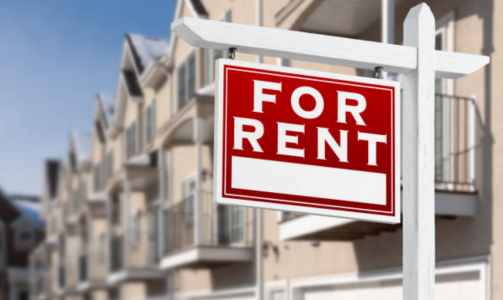Significant changes coming for millions of Aussies—here’s what they might mean for YOU
By
- Replies 3
For many Australians, renting a home is a way of life, whether by choice or necessity.
However, the rental market often feels like an uneven playing field, where tenants face uncertainty and vulnerability. From unexpected rent hikes to restrictive lease agreements, the system has long been tilted in favour of landlords, leaving renters with limited bargaining power and little recourse when disputes arise.
Change, however, is on the horizon. And this time, for the better. It aims to create a more balanced and equitable rental landscape to address some of the most pressing challenges renters face.
In what's being hailed as a monumental move, New South Wales will roll out a series of reforms over the next six months that will impact the state's 2.2 million renters.
These changes alleviate tenants' pressures in an increasingly tight and competitive market.
NSW Premier Chris Minns has emphasised that these reforms are about giving renters a fairer deal and updating the rental market to reflect 21st-century expectations.
‘Renters have been the forgotten people in NSW for too long. Housing is people's biggest cost, and renters are now getting a fairer deal,’ he said.
According to NSW Rental Commissioner Trina Jones, renters faced the most challenging market in decades.
Vacancy rates are at historic lows, and median house rents have climbed by approximately 7 per cent over the last year.
‘These reforms will provide tenants with practical and meaningful support, which will help ease the insecurity and vulnerability of renting in challenging city and regional rental markets,’ she claimed.
So, what exactly are these changes, and how will they affect you as a renter? Let's dive into the details.
No Grounds Evictions: A Thing of the Past
One of the most significant changes is the banning of 'no grounds' evictions.
This practice allowed landlords to evict tenants without a reason, leaving many renters in a precarious position.
With the new reforms, landlords must provide clear and valid reasons for ending a lease, such as breach of tenancy agreements, property sale, significant renovations, or personal use by the landlord or their family.
This change aims to offer greater housing security for tenants and more clarity for landlords.
Pet-Friendly Policies: A Win for Animal Lovers
The new laws will also make it easier for tenants to keep pets in their rental properties.
Landlords can no longer refuse a pet without a valid reason.
The only exceptions to which a landlord can refuse consent are the unreasonable number of animals, inadequate fencing, insufficient open space, or keeping the pet would contravene laws or by-laws.
This is a significant step forward for animal lovers who have previously struggled to find pet-friendly rentals.
Renters will also now face rent increases only once per year.
While the increased amount isn't capped, this change prevents landlords from raising the rent multiple times within a year.
Additionally, background check fees have been abolished, removing a financial barrier for those applying to multiple properties in a competitive market.
The Bigger Picture: Rental Affordability and Housing Stress
These reforms come when housing affordability is at a historic low and rental stress rises.
Tenants now spend a significant portion of their income on rent, so these changes are a step towards easing the burden.
However, the government is also looking at broader strategies to improve housing affordability, such as increasing the housing supply and managing the influx of international students.
What This Means for You
Interestingly, the rental reforms coincide with more seniors entering shared housing arrangements.
For many over 55, this move is driven by financial necessity, but a growing number also choose shared living for the companionship it offers.
With the fastest-growing demographic in shared housing being those over 75, the rental market is clearly evolving to accommodate the diverse needs of all age groups.
In conclusion, these sweeping changes to the NSW rental laws represent a significant win for renters, offering more security, fairness, and flexibility.
As these reforms are implemented, tenants must stay informed and understand their new rights and responsibilities.
If you're a renter in NSW, now is the time to familiarise yourself with these changes and prepare for a more balanced relationship with your landlord.
In other news, the Ray White real estate agency faced criticism for launching a 'Tenant of the Month' award, which many perceived as patronising.
Tenants and social media users labelled the initiative condescending, proposing a similar recognition for landlords to emphasise the importance of promptly addressing repairs and maintenance. You can read more about it here.

Have you faced challenges in the rental market? Do you see these reforms as a positive step forward? Share your experiences and insights in the comments below!
However, the rental market often feels like an uneven playing field, where tenants face uncertainty and vulnerability. From unexpected rent hikes to restrictive lease agreements, the system has long been tilted in favour of landlords, leaving renters with limited bargaining power and little recourse when disputes arise.
Change, however, is on the horizon. And this time, for the better. It aims to create a more balanced and equitable rental landscape to address some of the most pressing challenges renters face.
In what's being hailed as a monumental move, New South Wales will roll out a series of reforms over the next six months that will impact the state's 2.2 million renters.
These changes alleviate tenants' pressures in an increasingly tight and competitive market.
NSW Premier Chris Minns has emphasised that these reforms are about giving renters a fairer deal and updating the rental market to reflect 21st-century expectations.
‘Renters have been the forgotten people in NSW for too long. Housing is people's biggest cost, and renters are now getting a fairer deal,’ he said.
According to NSW Rental Commissioner Trina Jones, renters faced the most challenging market in decades.
Vacancy rates are at historic lows, and median house rents have climbed by approximately 7 per cent over the last year.
‘These reforms will provide tenants with practical and meaningful support, which will help ease the insecurity and vulnerability of renting in challenging city and regional rental markets,’ she claimed.
So, what exactly are these changes, and how will they affect you as a renter? Let's dive into the details.
No Grounds Evictions: A Thing of the Past
One of the most significant changes is the banning of 'no grounds' evictions.
This practice allowed landlords to evict tenants without a reason, leaving many renters in a precarious position.
With the new reforms, landlords must provide clear and valid reasons for ending a lease, such as breach of tenancy agreements, property sale, significant renovations, or personal use by the landlord or their family.
This change aims to offer greater housing security for tenants and more clarity for landlords.
Pet-Friendly Policies: A Win for Animal Lovers
The new laws will also make it easier for tenants to keep pets in their rental properties.
Landlords can no longer refuse a pet without a valid reason.
The only exceptions to which a landlord can refuse consent are the unreasonable number of animals, inadequate fencing, insufficient open space, or keeping the pet would contravene laws or by-laws.
This is a significant step forward for animal lovers who have previously struggled to find pet-friendly rentals.
Renters will also now face rent increases only once per year.
While the increased amount isn't capped, this change prevents landlords from raising the rent multiple times within a year.
Additionally, background check fees have been abolished, removing a financial barrier for those applying to multiple properties in a competitive market.
The Bigger Picture: Rental Affordability and Housing Stress
These reforms come when housing affordability is at a historic low and rental stress rises.
Tenants now spend a significant portion of their income on rent, so these changes are a step towards easing the burden.
However, the government is also looking at broader strategies to improve housing affordability, such as increasing the housing supply and managing the influx of international students.
What This Means for You
Interestingly, the rental reforms coincide with more seniors entering shared housing arrangements.
For many over 55, this move is driven by financial necessity, but a growing number also choose shared living for the companionship it offers.
With the fastest-growing demographic in shared housing being those over 75, the rental market is clearly evolving to accommodate the diverse needs of all age groups.
In conclusion, these sweeping changes to the NSW rental laws represent a significant win for renters, offering more security, fairness, and flexibility.
As these reforms are implemented, tenants must stay informed and understand their new rights and responsibilities.
If you're a renter in NSW, now is the time to familiarise yourself with these changes and prepare for a more balanced relationship with your landlord.
In other news, the Ray White real estate agency faced criticism for launching a 'Tenant of the Month' award, which many perceived as patronising.
Tenants and social media users labelled the initiative condescending, proposing a similar recognition for landlords to emphasise the importance of promptly addressing repairs and maintenance. You can read more about it here.
Key Takeaways
- NSW tenants will see significant changes to rental laws, which offer protections such as a ban on no-grounds evictions and a limit on rent increases to once per year.
- New reforms also extend rights to pet ownership, with landlords unable to refuse pets without a valid reason and abolishing fees for background checks.
- The changes aim to provide more security and fairness in the rental market, acknowledging renters' struggles in the current tight housing market.
- These reforms are part of broader efforts to address affordability and accessibility in the housing market as rental and home ownership pressures continue to grow.








